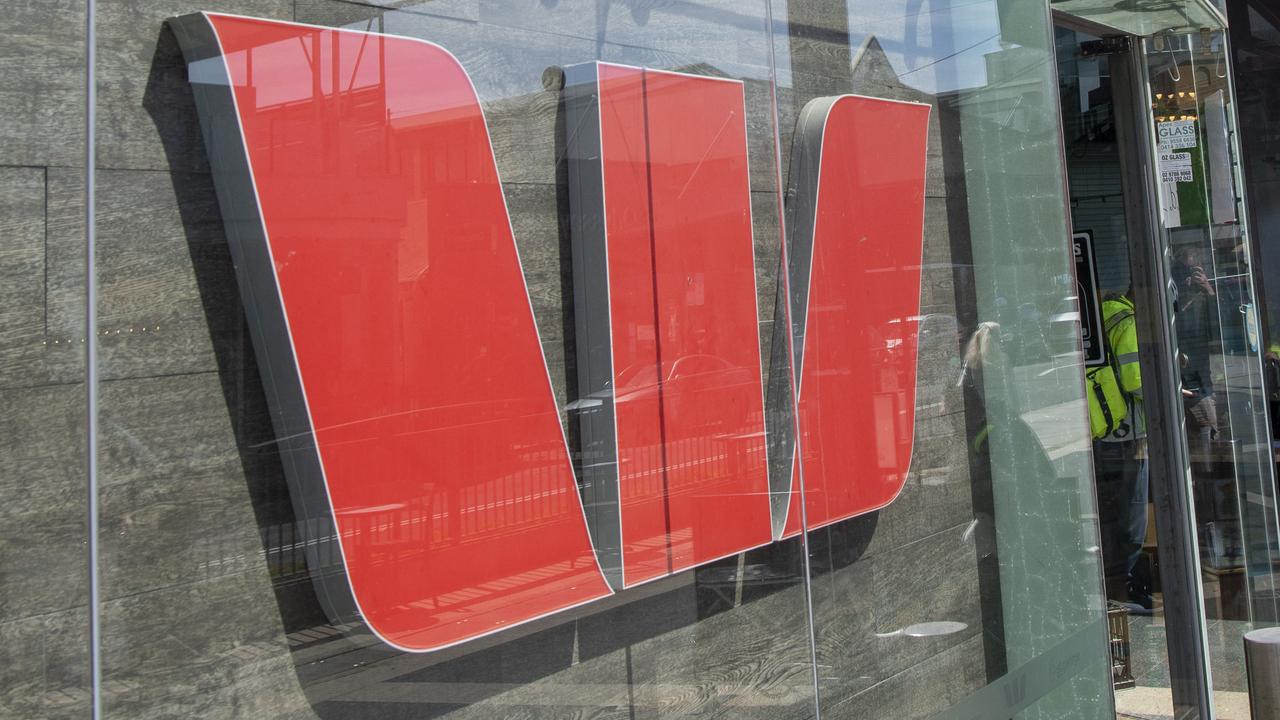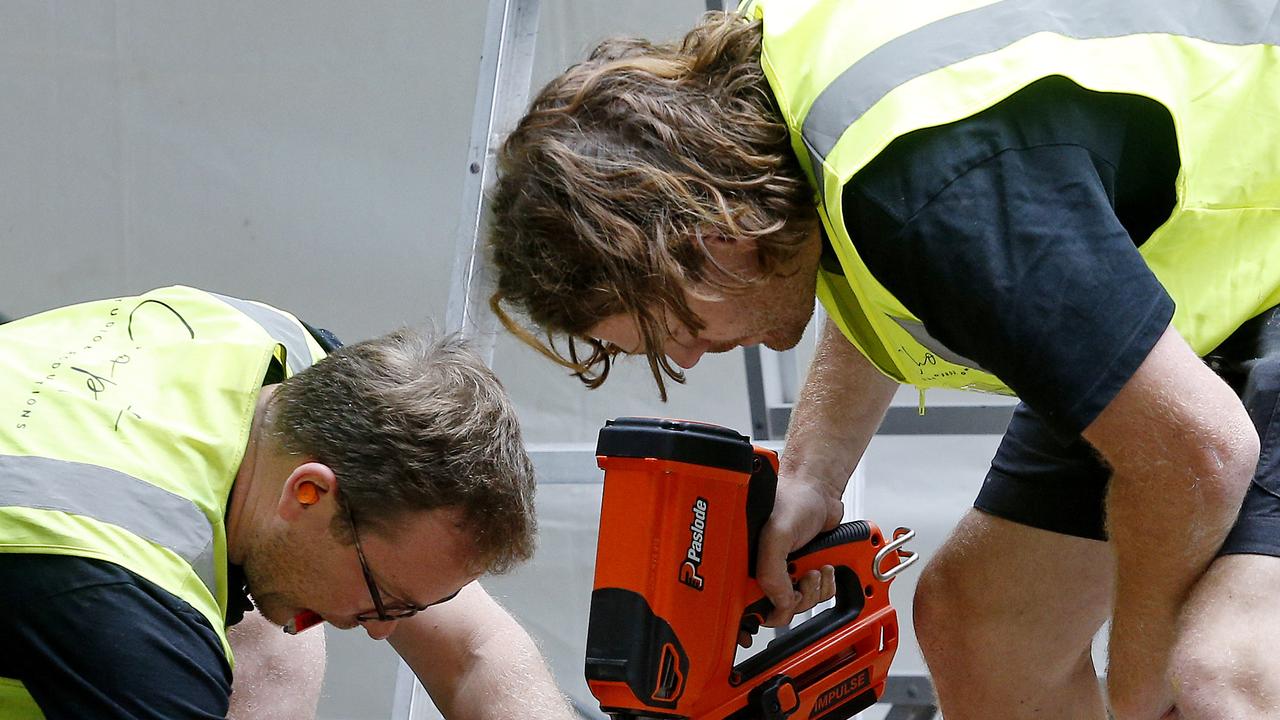How to land your dream job through sheer force of personality
YOU’VE all heard the usual tips: eye contact, firm handshake and all that. But these are the tricks used by the best.
CONSIDERING it takes half a second to make a first impression you don’t have much time to win over your potential next employer at a job interview.
We’ll bet you’ve heard all the generic advice before: maintain eye contact, ensure a firm, confidence-exuding handshake (just pretend you’re Batman), and, the be all and end all of no-brainer interview advice, shave your damn beard.
If you’re doing all that and still not landing jobs, here are some less conventional tips from psychologist, business consultant and author of Pitch Up! Paul Boross.
He’s worked with Richard Branson and Google, and coached everyone from BBC newsreaders to headliner comedians on their presenting styles. In other words, you need him in your corner.
MASTER YOUR SELF-PERCEPTION
This is probably how you see yourself walking into the interview: shoulders back, head up, a warm smile on your face as you extend your hand. But what if that’s not what you look like? What if you actually don’t look as enthusiastic as you think you do?
“You may think that your face looks completely pleasant, but other people may look at you differently. The trouble is, it’s impossible to be neutral,” says Boross. You’re always giving off something and you need to be sure that thing is what you mean it to be.
Boross suggests taking someone out who you have no real history with and asking them to be honest with you.
“Maybe it’s somebody at work or somebody in the family, a fellow student. Go to meet them and ask them to tell you what they think of you, what irritates them about you,” Paul says. “And the most crucial thing: what could I do to improve myself? It’s putting yourself out there because if you keep asking your mum or your dad or boyfriend or girlfriend what they think about you, they’ll never be as honest as somebody who is not tied into a reason to say something nice to you. It’s coming out of your comfort zone and getting the truth about perception.”
Importantly, if the feedback you’re getting isn’t what you wanted or expected, you now have the power to actively change. “It’s a kind of look in the mirror,” says Paul. “A lot of people bluster through life and say ‘Well that’s the way I am’ and actually the way you are doesn’t mean that’s the way you’re going to be for the rest of your life.”
Be the change you wish to see.
BE PRESENT
Unless you’re Patrick Bateman you’ll most likely have some pre-interview jitters. But instead of thinking all about you (Will they like me? Am I underqualified? What should I say to win them over?), make the interview about them. “One of the biggest mistakes people do in interviews is that they don’t connect to the person they’re being interviewed by. If you’re walking into an interview, make sure that you are giving off the aura of presentness, of fun, of interest,” says Boross.
“When you are properly engaged with someone, you are completely in that moment, and that’s where the magic happens,” he continues. “People who get jobs are people who know how to create connections instantly.”
MIMIC SUCCESSFUL PEOPLE
One way to become successful is to model ourselves on those who have already achieved it. “Psychological modelling” is actually copying or mirroring the behaviour of another person. And no, that doesn’t make you a psychopath stalker (well, unless you take it there, which we advise you don’t with someone you want to employ you).
“You have modelled people without even realising it,” Boross says. “It’s like going to a shop, you try things on. You think, ‘I wonder what will happen if I walk in like X, who everyone loves’. And you may notice their shoulders are back, their chin is always up and they’re smiling all the time. It’s simple things you will start to notice once.”
“Rather than going ‘Oh they’re all getting jobs and I’m not, they’re just lucky and I’m not’, what you have to think is, ‘That guy or that woman is always getting a job, what are they doing that’s different and better?’”
If it takes sitting at your boss’ desk when he’s out for the day, so be it. We didn’t suggest that though.
LEARN TO BE LIKABLE
This sounds obvious but it’s a particular kind of likability that seems to raise your chances of getting a job. Why do the most outgoing always seem to succeed?
“People forget that as human beings, we’re judging people by the criteria of ‘Do I like them?’” says Boross. “They’re buying into you on the level of, ‘Do I want this person around me for the next two years, five years, 10 years?’”
When you think of it that way, who would you pick to sit next to for half a decade? The guy who’s slumped at his desk or the guy who brings you beers on Friday 4pm?
Need more proof? A US study found that 70.9 per cent of people will change supplier based on if the new supplier is more fun. Not whether they’ve got better product — whether they’ll tickle your belly and make you laugh (OK, not that first part).
“If you think about it, people’s lives are generally quite boring. And if somebody gives you that feeling of being someone who people think is good fun, it makes a difference!” says Boross. “People like to think, ‘Oh, I didn’t get the job because my CV wasn’t as good as the other guy’s CV’ but I can pretty much tell you — I’ve worked with big companies and recruiters all over the world — it’ll still come down to ‘Do I like the person in the room.’”
So ... how?
Paul suggests reading. A lot. And, back to modelling ...
“Everybody can learn to be more likable, warmer. There are certain techniques and tricks and that’s why I talk about modelling so much. For example, I’ve worked with Richard Branson and he’s a really, really shy man — but you would never know that. If you get into a one to one conversation with Richard you will see that he spends a lot of the time looking at his lapel; but he just overcame it because he was the brand ambassador, he had to do it.”
LEARN TO EVOKE TRUST
New research revealed humans make judgments on someone’s trustworthiness within the first 500 milliseconds of hearing their voice. Yep, that fast.
A simple “Hello” is enough for most of us to determine whether someone’s trustworthy, dominant or none of the above (men who raised their tone — potentially showing emotion — are seen as more trustworthy in the research).
Why is trust so important?
“People will forgive an enormous amount if they like you. Who do we give jobs to? People we like and trust. People give jobs to friends. I would advise anybody [looking for a job] to work on their relationship skills, at least as much, if not more, than actually looking for jobs. Psychologically, you have to create that feeling [of trust] in anybody when you walk into the room for the interview.”
“If you ask anybody how they know they trust somebody they go ‘Oh, well I just get a feeling’” says Boross. “Well guess what? You need to start to get good at giving people that feeling.”
THINK BACK ON THE GOOD — AND REPEAT IT
Instead of thinking about how you mangled answers in previous interviews, think of all the times when an interview has gone well.
“Psychologically, what people do wrong is they analyse all the bad things. When people ask for feedback from companies they only ask for feedback when they haven’t got the job. Actually what you should be doing is asking for feedback from people who gave you the job or liked you. You need to know that’s the thing that made the difference — that’s what works.”
So your old boss or that loud, inefficient guy in your old office — the one who you could never understand why he seemed to always be on the boss’s good side while you weren’t — go buy them a coffee. Chances are they’ll pay you back with interest.
This article originally appeared on AskMen.



